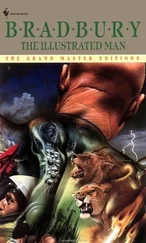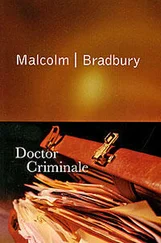Malcolm Bradbury - The History Man
Здесь есть возможность читать онлайн «Malcolm Bradbury - The History Man» весь текст электронной книги совершенно бесплатно (целиком полную версию без сокращений). В некоторых случаях можно слушать аудио, скачать через торрент в формате fb2 и присутствует краткое содержание. Жанр: Современная проза, на английском языке. Описание произведения, (предисловие) а так же отзывы посетителей доступны на портале библиотеки ЛибКат.
- Название:The History Man
- Автор:
- Жанр:
- Год:неизвестен
- ISBN:нет данных
- Рейтинг книги:3 / 5. Голосов: 1
-
Избранное:Добавить в избранное
- Отзывы:
-
Ваша оценка:
- 60
- 1
- 2
- 3
- 4
- 5
The History Man: краткое содержание, описание и аннотация
Предлагаем к чтению аннотацию, описание, краткое содержание или предисловие (зависит от того, что написал сам автор книги «The History Man»). Если вы не нашли необходимую информацию о книге — напишите в комментариях, мы постараемся отыскать её.
The History Man — читать онлайн бесплатно полную книгу (весь текст) целиком
Ниже представлен текст книги, разбитый по страницам. Система сохранения места последней прочитанной страницы, позволяет с удобством читать онлайн бесплатно книгу «The History Man», без необходимости каждый раз заново искать на чём Вы остановились. Поставьте закладку, и сможете в любой момент перейти на страницу, на которой закончили чтение.
Интервал:
Закладка:
The university gets bigger, year by year; a new building, a new path, a new stretch of water, takes it inexorably towards its fuller realization. The place has been functioning for only ten years; but in those ten years it has done everything, indeed has enacted the entire industrializing process of the modern world. Ten years ago this stretch of land was a peaceful, pastoral Eden, a place of fields and cows, focused around the splendours of Watermouth Hall, the turreted Elizabethan mansion now screened from sight by the massive constructions that have grown on the pasture and the stubble. At Watermouth Hall, peacocks strutted; so did the very first students, pleasant, likeable, outrageous people, stylists of quite another kind from the present generation, inventors of societies and lectures and concerts, smart souls who, when the photographers from the Colour Supplements came down, as they did all the time in those days, photographed well, and reputedly had all the makings of a modern new intelligentsia. The sun shone regularly then, the same sun that had shone on Edwardian England; the students had their tutorials in the ancient library of the hall, surrounded by busts of Homer and Socrates, by leather-bound volumes scarcely disturbed since the onset of Romanticism, or, in summer, in the box maze, while gardeners clipped respectfully around them. The faculty met ceaselessly, innovating, planning, designing new courses, new futures, new reasons for trips to Italy; endless optimism reigned, and novelty was everywhere, and Kaakinen came, and stared at the grass, and dreamed dreams, while cows peered over the haha at his Porsche. A year later the box garden was gone; in its place was a building, the first of the modern new residences, called Hobbes, with round porthole windows scooping down to the floors, and transparent Finnish curtaining, and signs in lowercase lettering. The feudal era was ending; a year later it was gone for good, when teaching was shifted from Watermouth Hall, which became an office block, devoted to administration, into the bright new buildings, some high, some long, some square, some round, that began to spring up here and there all over the estate. There were two more residence halls, Kant and Hegel; the gardeners, their deference spurned, had gone to greener pastures, while men on brush-bearing vehicles swept the new asphalt.
For now the university was beginning to secrete its history in clear annual stages, like a tree; and it was, in encapsulated form, the history of modern times. The bourgeoisie rose (Humanities and Natural Science opened their doors); the industrial revolution took place (the Business Building and the Engineering Building were opened); the era of the crowd and the factory arrived (the glass tower of Social Science came into use). The sun shone less often; the students appeared less and less in the newspapers, and looked different, and more confused. The new buildings all had toilets with strange modern symbols of man and woman on them, virtually indistinguishable; the new students came, and they stared at the doors, and at themselves, and at each other; they looked, and they asked questions like 'What is man, any more?' and so life went on. Gemeinschaft yielded to Gesellschaft; community was replaced by the fleeting, passing contacts of city life; people came into the university, and disappeared; psychiatric social workers were appointed, to lead them through the recesses of their angst. By 1967, when Howard came, it had been noticed that no given teacher could possibly remember the names and features of all the students he was teaching, nor master in face-to-face contact the number of colleagues he was teaching with. There were those who pined, and said more was worse, more people was worse life; but, as Howard told them, it was simply that the community was growing up. It grew and grew, up and up. In 1968, the year after Howard, full proletarian status was adopted; the students wore work-clothes, and said they were not an élite any more, and cried 'Destroy, destroy,' and modern citizenship was established. So it went on; in 1969, existential exposure, modern plight, the contemporary condition of pluralism and relativity, were officially accredited, with the opening of the multi-denominational chapel, named, to avoid offence, the Contemplation Centre; rabbis and gurus, ethical secularists and macrobiotic organicists presided at what was carefully not called its consecration. In 1970 the technotronic age became official; the Computing Centre was put into use, and it began work by issuing a card with a number on it to everyone on campus, telling them who they were, an increasingly valuable piece of information.
And now the campus is massive, one of those dominant modern environments of multifunctionality that modern man creates: close it down as a university, a prospect that seemed to become increasingly possible, as the students came to hate the world and the world the university, and you could open it again as a factory, a prison, a shopping precinct. There is a dining-hall with a roof of perspex domes, looking like sun umbrellas, by the man-made lake; there is an Auditorium in the shape of a whale, its hinder parts hung out on an elegant device of metal ropes over the lake; the buildings poke and prod and shine in a landscape itself reconstituted, as hills are moved here and valleys there. Some eclecticism and tolerance prevails; at the Auditorium they perform that week a Marxist adaptation of King Lear, this week a capitalist adaptation of The Good Woman of Setzuan. But a zealous equality prevails in the air, and the place has become a little modern state, with the appropriate services, in all their inconsistency: a post office and a pub and a Mace supermarket and a newsagent stand side by side with the psychiatric service, the crèche, the telephone life-line for the drug addicts, the offices of the Securicor patrol. The sun rarely shines; the peacocks have gone; the students are not bright originals in the old style, but bleaker, starker performers in the modern play; and when they are photographed by the press, which is rather less often, they appear not in the glossy pages but in the news pages, and upside down, hanging between two policemen. The campus spreads; now and then Air Force planes swoop low over it, as if inspecting to make sure it is still in the nation's hands, before they sweep on to the woods and cornfields beyond. A plane flies over now, as Howard stares out of his window; down below, in the Piazza, the students criss and cross, this way and that, in elaborate, asymmetrical patterns, ants with serious yet unguessable purposes.
How are they this year? Well, no longer do they look like an intellectual élite; indeed, what they resemble this autumn is rather the winter retreat of Napoleon's army from Moscow. For in the new parade of styles, which undergoes subtle shifts year by year, like the campus itself, bits of military uniform, bedraggled scraps of garments, fur hats and forage caps and kepis, tank tops and denims and coats which have lost their buttons have become the norm; the crowds troop along raggedly, avoiding the paths which have been laid out for them, hairy human bundles fresh from some sinister experience. Like the faculty, the place itself, they look smaller and darker and more worn than they did ten years ago. There is little wonder; much anguish has visited the Kaakinen city. Plagues of boils have fallen upon it; the locusts have eaten at the old dream of a university life totally new, qualitatively fine. In the rain the buildings are black; the concrete has stained, the glass grown dirty, the services diminished. The graffiti experts have been at work, inscribing 'Stop Police Brutality' and 'IRA' and 'Spengler Bootboys' on concrete and steel; there has been a small fire in the library; rapes and muggings occur occasionally in the darker corners of this good society. From time to time the radical passions overwhelm, then subside again; right reason and divine anger, Apollo and Dionysus, contend ceaselessly; suddenly frenzies arise, mouths cry, eyes glare, features distort. There is a student divorce problem, a statistically significant suicide rate. In the Students' Union voices cry: 'Woe, woe, the great city.' As Howard says, the place has grown up. He stares from the window; he takes in its texture. But now, over the wet, futurist place, a strange sound arises. It is the silvery chime of the old stable clock at Watermouth Hall, an eighteenth-century perpetuum mobile marvel that will not be stopped, ringing out the hour of ten. The chimes foolishly chime; Howard turns; there is a knock at his door. 'Yes?' shouts Howard, moving away from his windows, 'Come on in.'
Читать дальшеИнтервал:
Закладка:
Похожие книги на «The History Man»
Представляем Вашему вниманию похожие книги на «The History Man» списком для выбора. Мы отобрали схожую по названию и смыслу литературу в надежде предоставить читателям больше вариантов отыскать новые, интересные, ещё непрочитанные произведения.
Обсуждение, отзывы о книге «The History Man» и просто собственные мнения читателей. Оставьте ваши комментарии, напишите, что Вы думаете о произведении, его смысле или главных героях. Укажите что конкретно понравилось, а что нет, и почему Вы так считаете.











